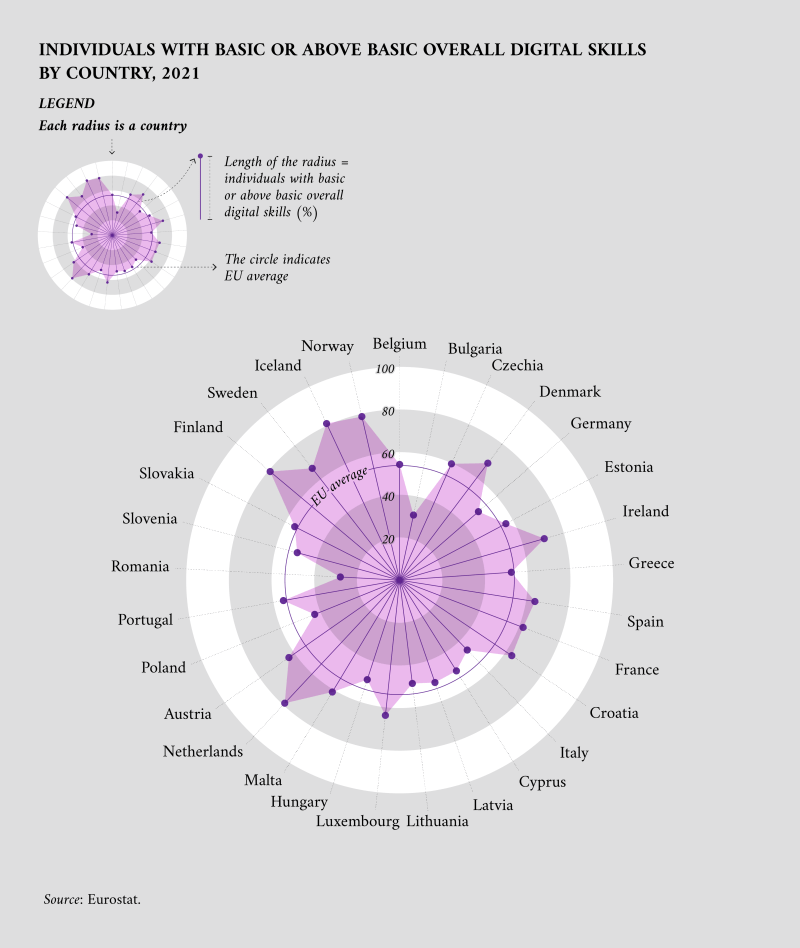Technology Literacy Article – By clicking Join or Sign in, you agree to our User Agreement, Privacy Policy, and Cookie Policy.
In an age where technology invades every aspect of our lives, digital literacy has become an essential skill for people of all ages. From students navigating online learning platforms to professionals adapting to remote work environments, the ability to understand and effectively use digital tools is not an option. In this article, we will discuss the importance of several aspects of digital literacy and its profound impact on our personal and professional lives.
Technology Literacy Article

Digital literacy goes beyond the basic capabilities of using a computer or smartphone. It covers a wide range of skills, including the ability to use digital technology to find, evaluate, create and communicate information. This includes using search engines, understanding online privacy and security, and the ability to identify trustworthy sources from misinformation. Digital literacy also includes critical thinking, problem solving, and the ability to adapt to new technologies.
Pengaruh Financial Technology Adoption Capability Dan Financial Literacy Terhadap Business Sustainability
Access to Information and Services: Digital literacy is provided to people who have access to a wealth of information and services. From online education and telehealth services to gaming and trading e-, the Internet is democratizing access to critical resources. But without the skills to navigate the digital space, the dangerous people would be left behind. Improved Communication: Digital tools have revolutionized the way we communicate. Stay connected with family, friends and colleagues around the world with social media platforms, video conferencing and instant messaging. Digital literacy ensures that people can effectively and accountable for these tools, and can promote better personal and professional relationships. Increased employment: Digital skills are highly valued in today’s job market. Many employers need the skills of basic computer applications, data analytics and digital communication tools. Digital literacy promotes employment by equipping people with the skills they need to succeed in a variety of roles. Additionally, it opens up new career opportunities in areas such as digital marketing, anxiety and data science.
In the field of education, digital literacy is important for both students and educators. With the rise of online learning, students will need to navigate virtual classrooms, use educational software, and research online. Digital literacy helps students become the leading students in auto. Students can sweat digital resources to improve their education.
For educators, digital literacy means the effective integration of technology into the classroom. This includes using digital tools to create engaging lesson plans, using online platforms to communicate and collaborate, and teaching students about digital citizenship. By promoting digital classrooms, educators can better prepare students to meet the demands of the modern world.
The benefits of digital literacy are clear, but make sure everyone has access to digital education. Digital disparities – the difference between people with and without access to technology – accurate social and economic inequality. To draw this gap, it is essential to promote digital literacy for everyone, regardless of age, socioeconomic status, or geographical location.
The Need Of Integrating Digital Education In Higher Education: Challenges And Opportunities
Community Programs: Libraries, community centers and nonprofits play an important role in promoting digital literacy. Free or low-cost workshops, computer and internet access, and one-on-one assistance will help those developing digital essential skills. School Initiative: Integrating digital literacy into the school curriculum ensures that students develop these skills from an early age. Schools can provide access to technology, train digital education teachers, and incorporate digital literacy into a variety of topics. Government Policy: Governments can support implemented applications that promote digital inclusion by investing in infrastructure such as bandage access. Public awareness campaigns and partnerships with private sector organisations can also help raise awareness of the importance of digital literacy.
In conclusion, digital literacy is the foundation of modern life. Enhance people by providing access to information and services, improving communication and increasing work. Education equips students with the educators and tools they need to succeed in the digital world. It is important to pump digital disparities through community programs, school initiatives, and supportive government policies to ensure that everyone benefits from digital literacy. Priority digital literacy allows us to build a more inclusive, informed and innovative society. If you are reading this article, you may be interested in developing digital literacy skills. Digital literacy is the ability to use digital tools and technologies to find, evaluate, create, and communicate information. In today’s world where technology is ubiquitous, digital literacy is becoming increasingly important for personal and professional success.
Understanding digital literacy is the first step in developing the skills needed to navigate the digital world. Digital literacy is more than just knowing how to use a computer or smartphone.

Understanding how to solve problems, communicate effectively, and use technology to access information. Digital literacy includes a variety of skills, including information management skills, digital communication skills, and critical thinking skills.
Keep Your Digital Media Literacy Skills Updated!
Digital literacy refers to the ability to access, evaluate, create and communicate information using digital technology. It covers a variety of skills, including the ability to use digital tools and software, online surfing settings, and critical evaluation of digital information. Developing digital literacy skills is essential in today’s digital age. This allows you to effectively engage with technology and make the most of the opportunities it presents.
At the heart of digital literacy is the ability to understand and use digital technology to access process information. This requires a solid foundation of knowledge about how digital technology works, and an understanding of how to navigate online settings to find the information you need. It also includes the ability to assess the quality and availability of digital information and effectively use this information in a variety of contexts.
By developing these skills, you will become more confident and capable by using digital technology, and are equipped to navigate your digital landscape complex in the 21st century.
In today’s digital age, digital literacy is becoming an essential skill for everyone. Digital literacy refers to the ability to use digital technology to effectively and efficiently access, evaluate, create and communicate information. It includes a variety of skills, ranging from basic computer skills to more advanced skills such as coding, data analytics and digital marketing.
Algorithmic Methodological And Mathematical Literacy Of The Future Primary Education Teacher: Perspective Of Learning Technology
Digital literacy is important for many reasons. First of all, it is essential for education. Digital technology is increasingly used in education, and students who lack digital literacy skills may have difficulty catching up with their peers. Digital literacy skills can help students effectively access, evaluate and create information. This is essential to academic success.
Secondly, digital literacy is important to your work. In today’s digital economy, most jobs require a certain level of digital literacy skills. Employers are looking for candidates who can effectively implement job assignments using digital technology. Digital literacy skills can also improve employment. This is because it is often listed as a requirement for employment advertising.
Third, digital literacy is important for communication. Digital technology is changing the way we communicate, and digital literacy skills are essential for effective communication. For example, digital literacy skills can help you connect effectively with others using social media and interact with colleagues and clients using video conferencing software.

Finally, digital literacy is important for the digital economy. The digital economy is growing rapidly, and digital literacy skills are becoming increasingly important to businesses. Digital literacy skills help businesses improve their online presence, reach new customers, and stay competitive in the digital market.
Activity-based Learning Model Using Virtual Interactive Micro-learning On Cloud Community To Enhance Digital Literacy Skills
In conclusion, digital literacy is an essential skill for everyone in today’s digital age. It is important for education, work, communication and the digital economy. By developing digital literacy skills, you can improve your academic and professional performance, improve your communication skills, and stay competitive in the digital market.
Understanding the elements of digital literacy is important to develop digital literacy skills. Digital literacy is a broad term that includes a wide range of skills and skills. The four main elements of digital literacy are technical skills, information management, communication and collaboration, and digital security.
Technical skills refer to the ability to effectively use digital tools and technology. This includes basic computer skills such as typing, using a mouse, surfing the internet, and more advanced skills such as programming, website design, and multimedia production. To develop technical skills, you can take online courses, access workshops, or practice using digital tools.
Information management refers to the ability to effectively find, evaluate and use information. This includes skills such as searching online information, critical assessment sources, and organizing and managing digital files. To develop information management skills, you can practice searching for information online, assess sources for reliability and importance, and learn how to use tools such as cloud storage and digital note-taking apps.
Digital Inclusion As A Social Determinant Of Health
Communication and collaboration refers to the ability to communicate effectively using digital tools and collaborate with others online. This includes skills such as effective email writing, taking part in online discussions, and using social media in professional networks. Practice writing professional emails to develop communication skills and collaboration, join online forums and discussion groups, and use social media to connect with other professionals












